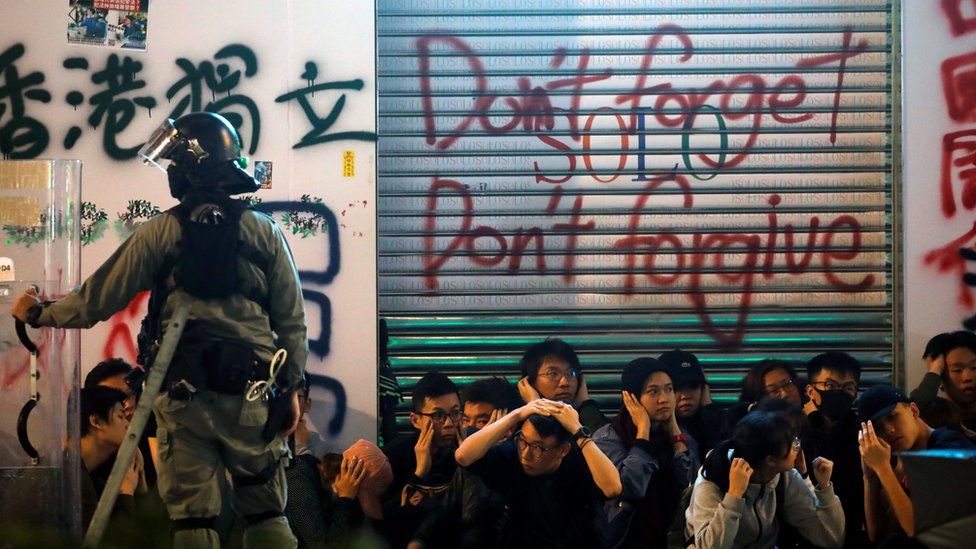Hong Kong PTSD level 'comparable to conflict zones', study finds
- Published

Around a third of adults in Hong Kong reported symptoms of post-traumatic stress disorder (PTSD) during the often-violent pro-democracy protests, according to a new study.
The number was six times higher than four years ago, the University of Hong Kong study found.
Levels of depression are reportedly comparable to those in conflict zones.
The study's authors urged officials to improve the city's mental health provision.
Hong Kong's protests began last June, focusing on a controversial bill that would have allowed the extradition of suspects to mainland China.
The bill was later withdrawn, but demonstrations have since evolved into a broader movement demanding investigations into police brutality and democratic reform.
What does the study say?
The research, published in The Lancet medical journal, was based on surveys of more than 18,000 Hong Kong residents between 2009 and 2019.
The increase in PTSD symptoms corresponds to around 2 million adults out of a city of 7.4 million.
The trauma of Hong Kong's teenage protesters
Around 11% of adults reported symptoms of depression, up from around 2% before the city's earlier 2014 Occupy protests.
"One in five adults now reports probable depression or suspected PTSD, which is comparable to those experiencing armed conflicts, large-scale disasters, or terrorist attacks," the study said.
The use of social media to follow the unrest was likely exacerbating the chances of mental health deterioration, the writers added.
The numbers could actually be conservative, the study noted, due to under-18s not being included.
"Hong Kong is under-resourced to deal with this excess mental health burden," said professor Gabriel Leung, dean of medicine at the University of Hong Kong, who co-led the research.
- Published28 December 2019
- Published17 June 2019
- Published28 November 2019